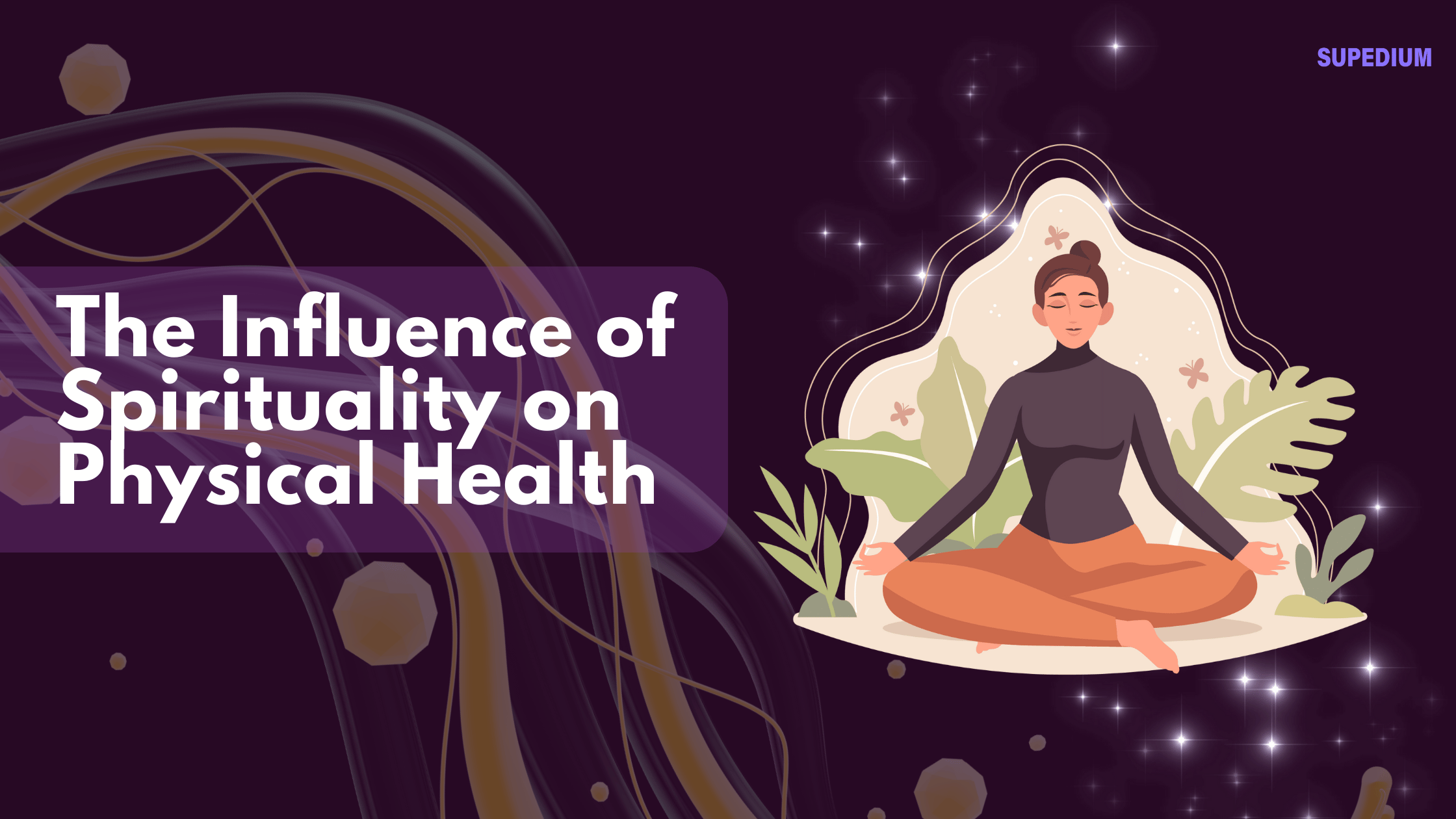Table of Contents
- 1 I. Introduction
- 2 II. Theoretical Framework
- 3 III. Empirical Evidence of Spirituality’s Impact on Physical Health
- 4 IV. Specific Areas of Physical Health Affected by Spirituality
- 5 V. Case Studies and Research Examples
- 6 VI. Mechanisms Through Which Spirituality Influences Health
- 7 VII. Criticisms and Controversies
- 8 VIII. Practical Implications
- 9 IX. Future Research Directions
- 10 X. Conclusion
![]()
I. Introduction
Spirituality, a broad and often personal concept, encompasses a wide range of beliefs and practices that connect individuals with a sense of purpose or a higher power. It is distinct from organized religion in that it does not necessarily adhere to a specific doctrine or set of practices. Physical health, on the other hand, refers to overall well-being and the absence of disease, influencing an individual’s quality of life. Understanding the interplay between spirituality and physical health is crucial, as it can offer insights into how non-material aspects of life impact physical well-being.
II. Theoretical Framework
The connection between spirituality and physical health can be understood through several theoretical frameworks.
- Mind-Body Connection: This concept suggests that mental and emotional states have a profound effect on physical health. Spiritual practices like meditation and prayer can influence mental states, which in turn may affect physical health outcomes.
- Psychoneuroimmunology (PNI): This interdisciplinary field explores the interaction between psychological processes, the nervous system, and immune responses. PNI research indicates that spiritual practices can modulate stress responses and immune system function, potentially influencing overall health.
III. Empirical Evidence of Spirituality’s Impact on Physical Health
Research provides valuable insights into how spirituality can affect physical health through psychological and behavioral mechanisms.
- Psychological Mechanisms:
- Stress Reduction: Spiritual practices such as meditation and prayer have been shown to reduce stress, which can lower cortisol levels, a hormone associated with stress. Reduced stress can lead to improvements in various health markers.
- Emotional Resilience: Spirituality often provides individuals with coping strategies that enhance emotional resilience. This resilience can positively affect immune function, reducing susceptibility to illness.
- Behavioral Mechanisms:
- Healthy Lifestyle Choices: Many spiritual practices encourage health-promoting behaviors such as a balanced diet and regular exercise. Additionally, spiritual beliefs often discourage substance abuse, which can contribute to overall better health.
- Social Support and Community: Spiritual communities offer social support that can play a significant role in health. Engaging in community activities associated with spirituality can enhance mental health and provide resources for managing physical health.
IV. Specific Areas of Physical Health Affected by Spirituality
- Cardiovascular Health: Research indicates that spirituality can have a beneficial effect on cardiovascular health. For example, practices like meditation and prayer are associated with lower blood pressure and reduced risk of heart disease. The mechanisms often involve stress reduction and improved coping strategies.
- Chronic Pain and Illness: Spirituality can impact pain perception and management. Some studies have found that individuals who engage in spiritual practices report lower levels of pain and improved management of chronic conditions such as arthritis.
- Immune System Function: Spiritual practices have been linked to improved immune function. Regular engagement in spiritual activities is associated with better immune responses, which can help in preventing and managing diseases.
- Longevity and Quality of Life: There is evidence suggesting that spirituality is correlated with increased longevity and improved quality of life. Spiritual practices may contribute to a more fulfilling life and a longer lifespan by fostering emotional well-being and social connections.
V. Case Studies and Research Examples
- Review of Key Studies:
- Randomized Controlled Trials (RCTs): Several RCTs have investigated the effects of spiritual interventions on health outcomes. For instance, some studies have demonstrated that meditation can reduce symptoms of anxiety and depression, which can, in turn, affect physical health.
- Longitudinal Studies: Long-term studies have shown that individuals who regularly engage in spiritual practices tend to have better health outcomes and a lower incidence of chronic illnesses.
- Analysis of Findings:
- Common outcomes include improvements in stress management, enhanced emotional resilience, and better immune responses.
- Variations in results can be attributed to differences in populations studied, methodologies used, and definitions of spirituality.
VI. Mechanisms Through Which Spirituality Influences Health
- Psychological and Emotional Pathways:
- Spirituality provides coping mechanisms that reduce stress and enhance emotional well-being. Positive emotions and mental health derived from spiritual practices can have a cascading effect on physical health.
- Behavioral Pathways:
- Spiritual beliefs often promote health-conscious behaviors such as a nutritious diet, regular physical activity, and avoidance of harmful substances. Social support from spiritual communities also contributes to better health.
- Physiological Pathways:
- Spiritual practices can influence hormonal and immune responses. For example, meditation has been linked to reduced levels of stress hormones and improved immune function.
VII. Criticisms and Controversies
- Methodological Issues:
- Research on spirituality and health often faces challenges related to study design, such as small sample sizes and lack of standardized measures of spirituality. These issues can affect the reliability and generalizability of findings.
- Ethical Considerations:
- Ethical concerns include respecting diverse beliefs and avoiding biases in research. It is important for studies to approach spirituality with sensitivity and inclusivity.
VIII. Practical Implications
- Integrating Spirituality in Healthcare:
- Healthcare providers can consider incorporating spiritual assessments and support into patient care. Understanding patients’ spiritual needs can improve overall health outcomes and patient satisfaction.
- Recommendations for Individuals:
- Individuals can explore spiritual practices that resonate with them to enhance well-being. Balancing spirituality with other health practices can contribute to a holistic approach to health.
IX. Future Research Directions
- Emerging Trends and Areas of Interest:
- Future research could explore interdisciplinary approaches, integrating spirituality with advances in health science. Innovative research methods may provide new insights into the spirituality-health connection.
- Gaps in Current Knowledge:
- There is a need for more diverse and inclusive studies that address various cultural and demographic groups. Long-term and cross-cultural research can help fill gaps in current knowledge.
X. Conclusion
The influence of spirituality on physical health is a multifaceted and evolving area of study. The interplay between spiritual practices and health outcomes highlights the importance of considering non-material aspects of life in promoting overall well-being. As research continues to develop, understanding this relationship can lead to more comprehensive approaches to health that integrate both physical and spiritual dimensions.
Share This





Be the first to comment